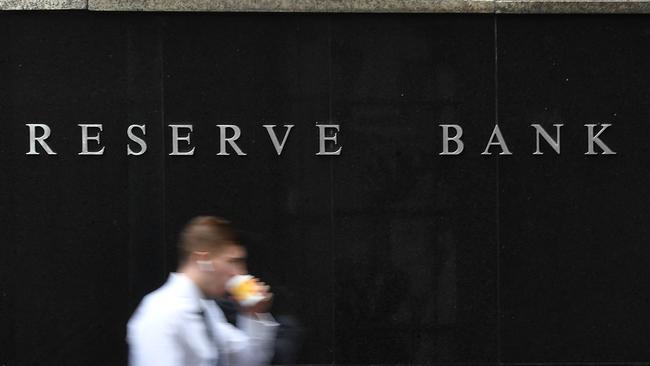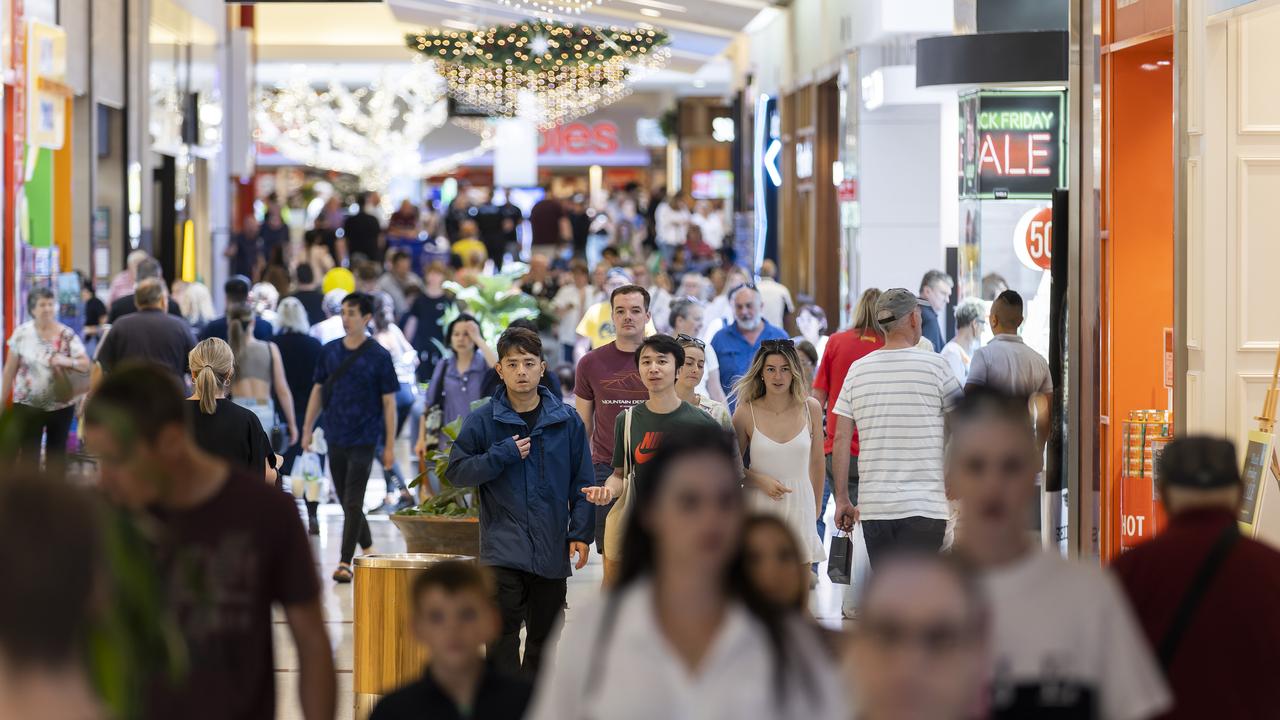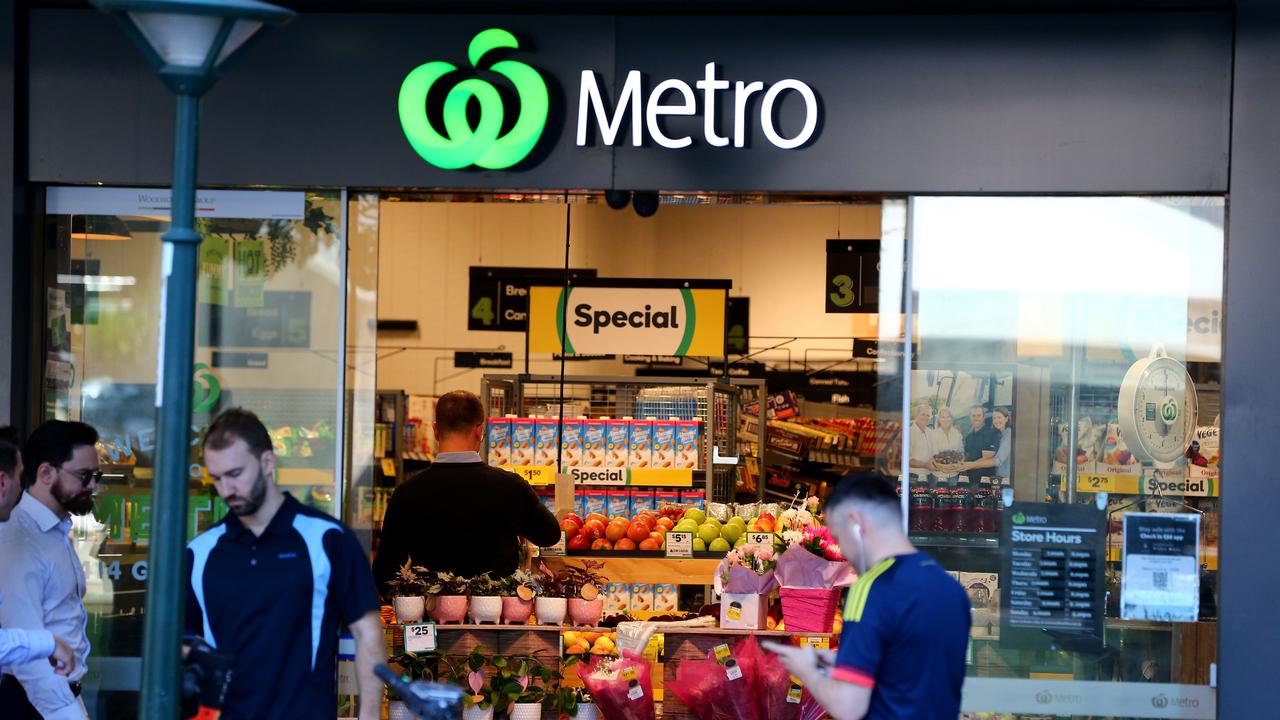RBA set to delay taper: economists
What is adding fuel to speculation of a delay in the RBA’s plan to trim the size pace of its bond purchases in September?

Business
Don't miss out on the headlines from Business. Followed categories will be added to My News.
Increasing Covid restrictions and the Reserve Bank’s emphasis on “flexibility” in its bond purchases amid a “high degree of uncertainty” about the economic outlook have fuelled speculation of a delay in its plan to reduce its bond purchases in September.
Two weeks after the central bank said it would lower its bond buying to $4bn a week in September from $5bn a week now, amid a stronger than expected economic recovery that was forecast to continue, economists at ANZ, CBA, Goldman Sachs, Royal Bank of Canada and Westpac said the RBA was now unlikely to go ahead with “tapering” in September because of a potential $10bn hit to the economy from Covid lockdowns that could spill into August.
It came as Victoria extended its fifth Covid lockdown by a week, South Australia announced a one-week shutdown, modelling conducted at University of Melbourne suggested NSW will not be in position to lift its lockdown restrictions until the end of August, and a survey by ANZ Roy Morgan found that Australian consumer confidence suffered its sharpest weekly fall since late March 2020.
In the minutes of its July 6 board meeting, the RBA said: “Given the high degree of uncertainty about the economic outlook, members agreed that there should be flexibility to increase or reduce weekly bond purchases in the future, as warranted by the state of the economy at the time, rather than a commitment to a specific rate of purchases over an extended period.”
The doubts emerged amid risk-aversion in global markets partly due to concerns about the Covid Delta variant.
The Australian dollar hit a seven-month low of US73.11c, the 10-year bond yield hit a five-month low of 1.167 per cent, and the S&P/ASX 200 share index reached a seven-week low of 7205 points.
CBA head of Australian economics Gareth Aird said that while this month’s decision by the RBA to taper its bond purchases from mid-September was underpinned by its assessment that economic outcomes had been “materially better than earlier expected and the outlook had improved”, the near-term outlook had since deteriorated due to extended lockdowns in large parts of the country.
“Giving the unforeseen nature of events in regard to the spread of COVID-19 and the lockdowns we now expect the RBA to reverse the decision to taper the bond-buying program from mid-September if Greater Sydney and/or Victoria are still in lockdown at the time of the August board meeting.”
Mr Aird said inflation data next week might “complicate” policy decisions if it was higher than expected.
But “the hit to the economy from the lockdowns” should “trump the inflation data” in regard to near-term monetary policy decisions.
If the RBA did reverse the decision to taper in September, the course of the pandemic, lockdowns and the speed at which the economy bounced back would influence the timing of any tapering, which could come in November, he added.
“There is not a lot of point in speculating at this juncture which way things will go given the length of the lockdowns is unknown,” Mr Aird said.
“The uncertainty around the duration of lockdowns also casts some doubt over our call for the RBA to begin normalising the cash rate from November 2022.
“Indeed that doubt is growing with each further extension of the lockdown, but for now we are sticking with the call while acknowledging the risks are firmly centred on pushing the call out.”
He added that it could turn out that economic momentum was once again very strong by the December quarter if restrictions were fully eased.
“The vaccine rollout should mean that lockdowns are a thing of the past next year and the domestic economy will have clear air,” he said.
“Exceptionally loose monetary policy with expansionary fiscal settings will provide a tailwind.
“In addition, households will be armed with an unprecedented war-chest of savings that will continue to accumulate over the second half of 2021. In summary, the Australian economy will perform very strongly in 2022 and wages and inflation pressures will build.”
Westpac chief economist Bill Evans said the RBA might even increase the size of its quantitative easing to $6bn a week in view of an expected 0.7 per cent contraction in the Australian economy in the September quarter due to the estimated $8bn cost of lockdowns.
He was assuming an eight-week lockdown of Greater Sydney – including a two-week shutdown of the construction sector – and a three-week lockdown of Victoria.
The shutdown of NSW construction would have a “significant impact on the NSW economy” as building accounts for about 10 per cent of the Sydney workforce.
And while expecting a December quarter rebound, Mr Evans said data pointing to a contraction in the September quarter would “elicit further support from fiscal and monetary authorities”.
The government was “well positioned to provide further support” and “the RBA will be committed to being seen to be supporting any stimulatory efforts”.





